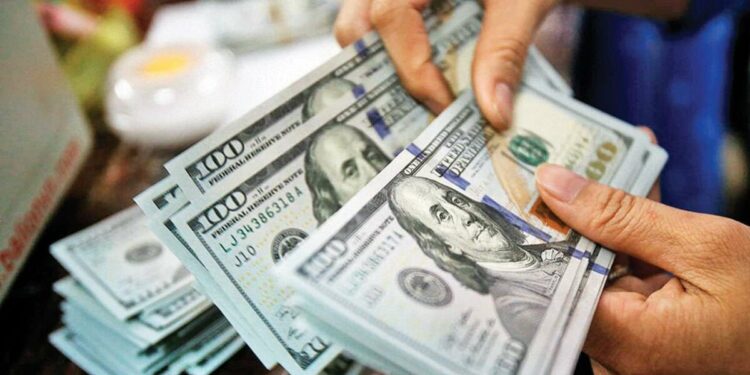The naira has reached its lowest value in four months, standing at 1,603.8 to the dollar, as the Central Bank of Nigeria (CBN) struggles to maintain its stability. This drop comes despite multiple interventions by the CBN, including raising interest rates and supplying foreign currency to the market.
On Thursday, market liquidity for foreign currency fell by 23%, leaving it at $131 million. The CBN had raised interest rates by 50 basis points to 26.75% earlier in the week in an attempt to curb the downward trend of the naira.
To bolster liquidity, the CBN provided dollars to 29 dealer banks at a fixed exchange rate ranging from 1,470 to 1,510 naira per dollar on Monday and Tuesday. However, experts like Samir Gadio of Standard Chartered Plc stress that consistent and steady sales are crucial for market stability and rebuilding trust in the naira.
Despite a rise in Nigeria’s gross reserves to $37.05 billion as of mid-July, the internal market continues to experience a shortage of dollars. This scarcity has been attributed to seasonal demand, as affluent Nigerians pay for overseas holidays and education.
The naira has depreciated by 43% this year, making it the second-worst-performing currency globally, after the Lebanese pound. The currency has also lost about 70% of its value since President Bola Tinubu eased currency restrictions to attract foreign investment while partially lifting fuel subsidies. These actions have spurred inflation to nearly a 30-year high, prompting the CBN to increase borrowing rates by 15.25 percentage points since early 2022.
During a recent Treasury Bill auction, the CBN offered a record yield of 22.1% to manage excess liquidity in the banking system, a move deemed necessary by experts to mitigate exchange rate pressures. Financial analyst Charles Abuede emphasized the need for improved liquidity in the official market and reducing the disparity between the official and parallel markets to stabilize the naira.
Additionally, dollar inflows through International Money Transfer Operators (IMTOs) have surged, reaching a six-year high. According to a BusinessDay analysis, the first quarter of this year saw a 39% increase in dollar inflows, rising from $771 million in 2023 to $1.07 billion, offering some relief to Nigeria’s foreign exchange liquidity challenges.











